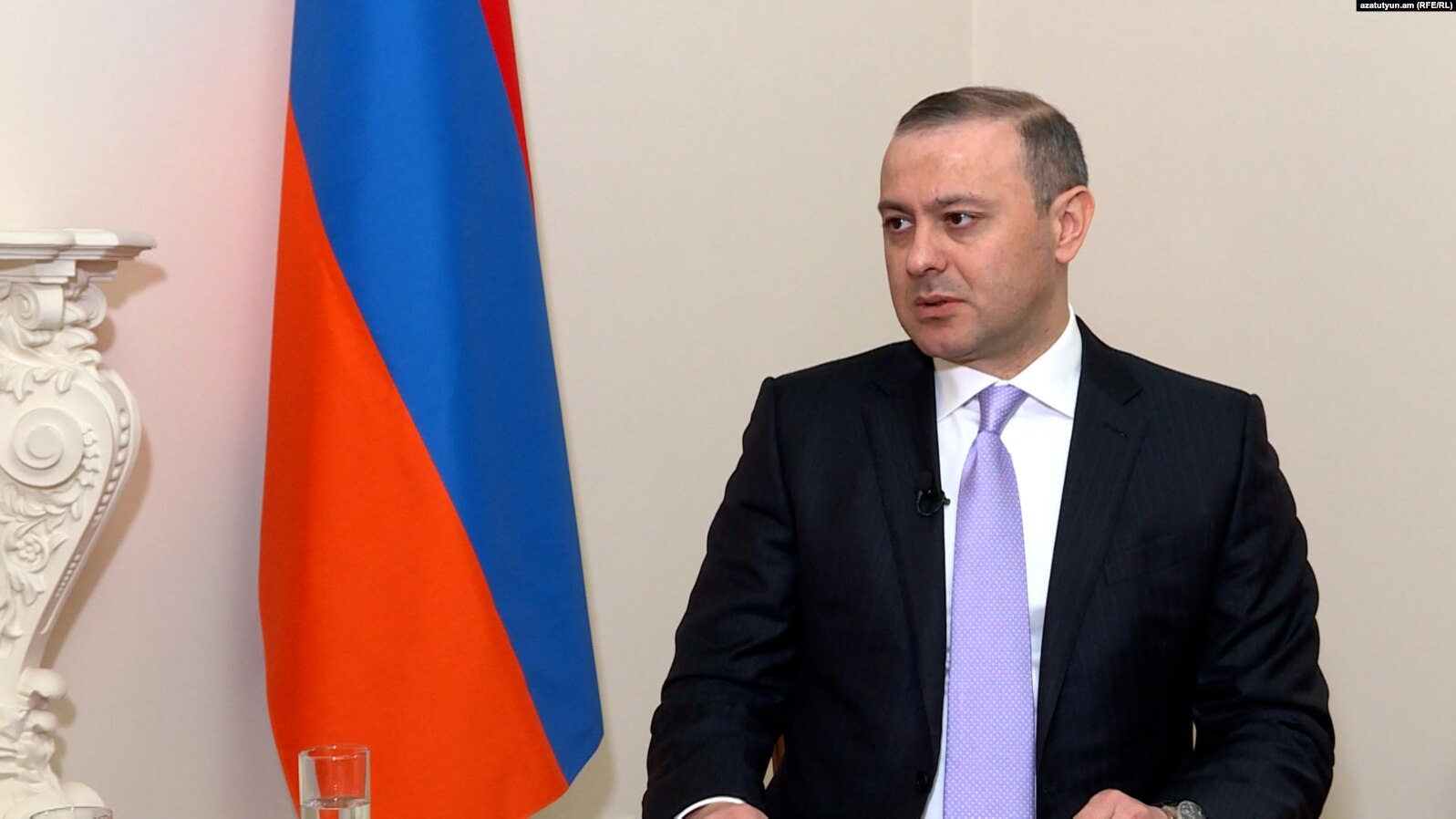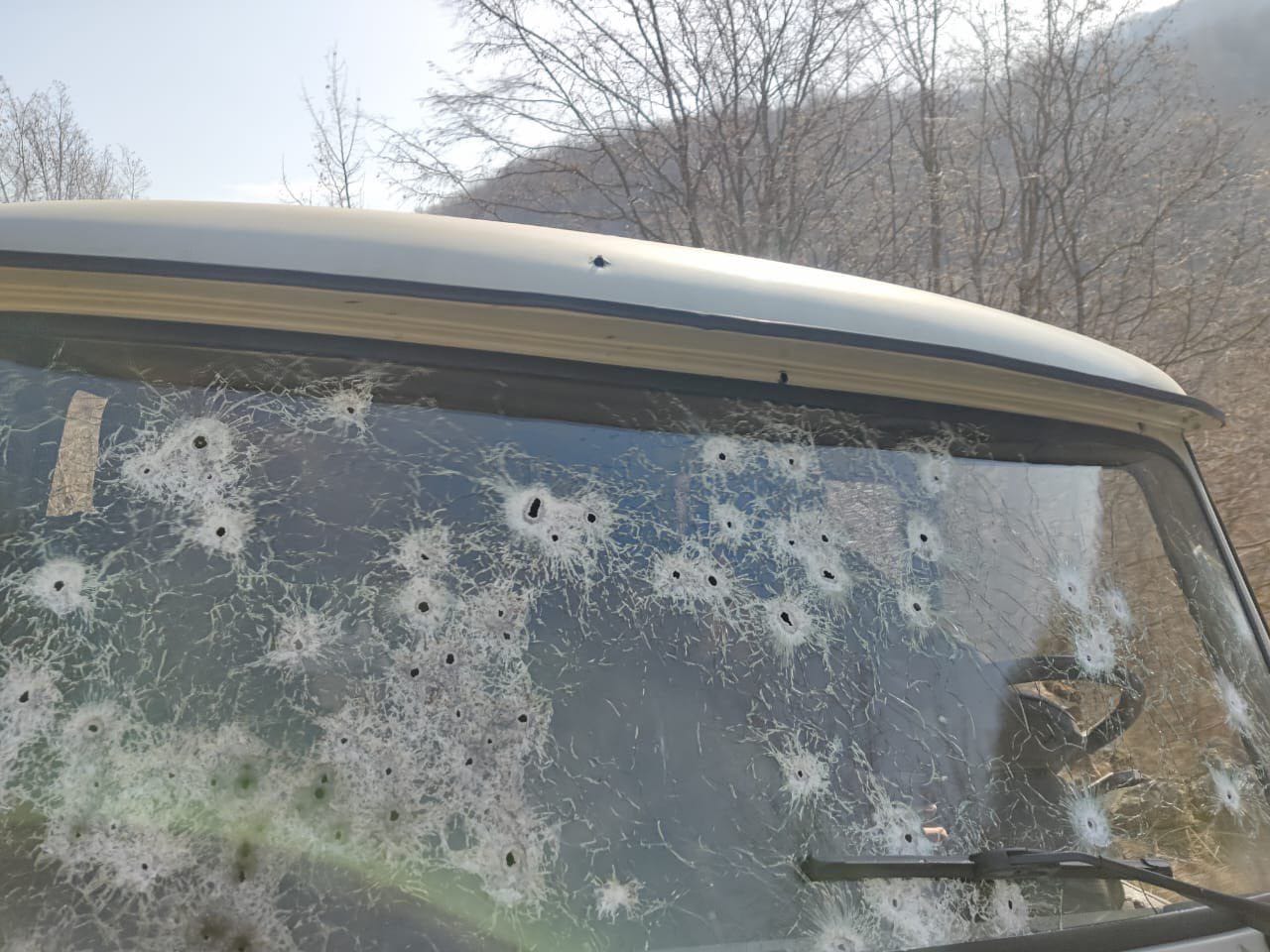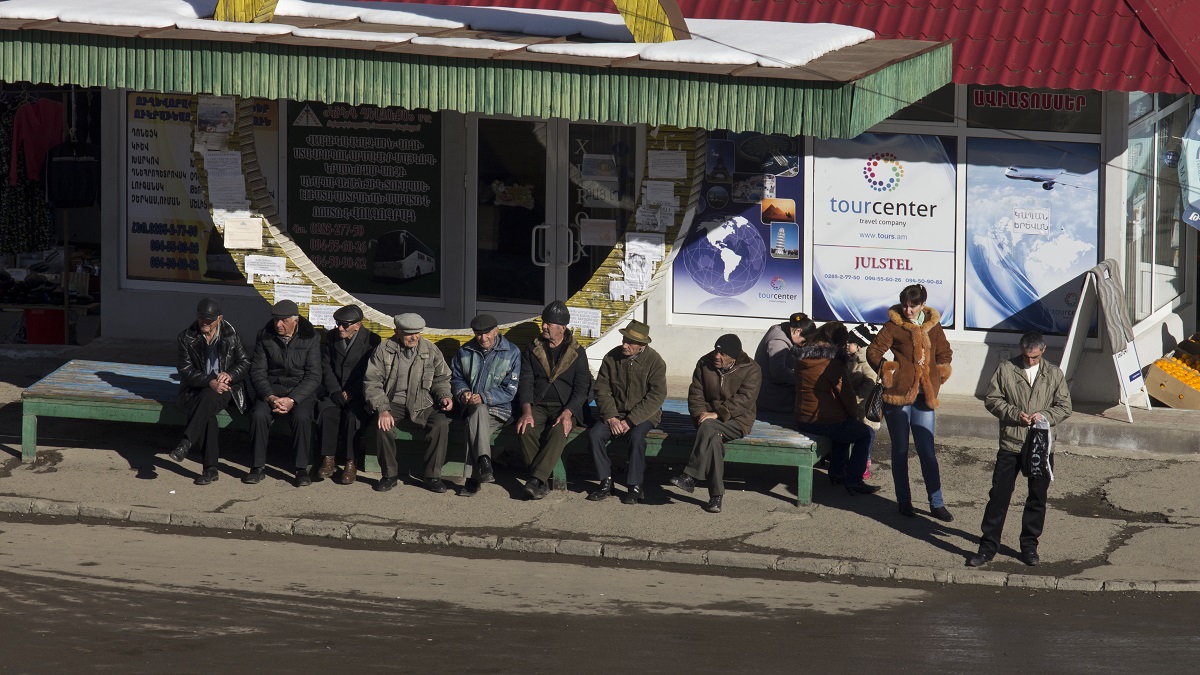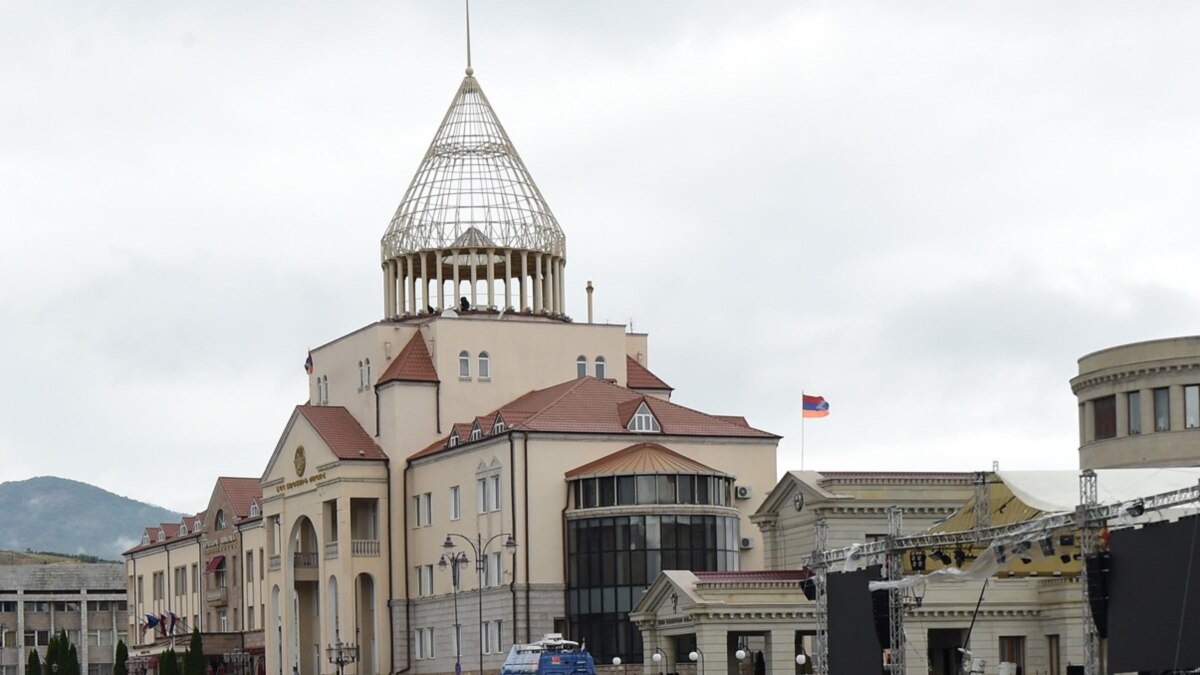The 100th day of the Lachin corridor blockade
100th day of the Lachin corridor blockade
“Democratic values are on one side of the scale, oil and gas are on the other. If, in fact, democratic values were more important to the big players, the road would have been unblocked long ago,” Artur Tovmasyan, speaker of the unrecognized NKR parliament, said on the 100th day of the blockade of the Lachin corridor. The only road connecting the region with the outside world and Armenia has been blocked since December 12 by Azerbaijanis who declare themselves to be environmental activists.
The Armenian authorities have been warning for a long time that a humanitarian catastrophe is brewing in Nagorno-Karabakh. To restore unhindered movement along the Lachin corridor in Armenia, effective steps are expected from Russia, whose peacekeeping troops are stationed there.
Azerbaijan is still ignoring both the appeals of various countries and international organizations, as well as the decision of the Hague Court, which has obliged Azerbaijan to ensure unhindered movement along the corridor.
Report of the Ombudsman on the situation in NK
The Office of the Ombudsman of NK published a report on violations of individual and collective human rights during the 100 days of blockade accompanied by photographs and stories about the lives of those under the blockade, and documents about violations of the rights of those residing in the unrecognized republic.
The report provides an update on the situation resulting from the blockade:
- “the two-way movement of people along the Stepanakert-Goris highway (Lachin corridor) has decreased by about 178 times (1,376 entries and exits instead of 245,000);
- the movement of vehicles has decreased by almost 43 times compared to before the blockade (instead of 92,000, 2,154 vehicles entered and left, and these were only vehicles of the Red Cross and Russian peacekeepers);
- vital cargo imported about 11 times less than it should have been (3,707 tons instead of 40,000);
- 3,900 people unable to return to their homes due to the blockade, 570 of them children;
- about 900 people have missed out on elective surgery
- during the blockade, Azerbaijan has completely or partially cut off the gas supply from Armenia to NK for a total of 34 days;
- the supply of electricity from Armenia was completely interrupted for 71 days [due to an accident on a high-voltage transmission line in the territory under the control of Azerbaijan, local resources are insufficient]
- it is estimated that 9,800 people have lost their jobs and source of income (including those who retained their jobs), which is more than 50 percent of private sector workers.”
The document states that Baku’s goal is to “subject Artsakh to ethnic cleansing and destroy the indigenous Armenian population of Artsakh through physical and psychological intimidation”, by creating unbearable living conditions:
“The policy of interethnic hatred pursued by Azerbaijan confirms that any status of Artsakh within Azerbaijan is tantamount to ethnic cleansing and the Armenian genocide. Consequently the international community has not only the right, but also an irrefutable obligation to fulfill the decision of the highest international court by practical means and prevent further crimes by Azerbaijan.”
The report states that as a result of the closure of the Lachin corridor
- 120,000 are under blockade, including 30,000 children;
- people are deprived of sufficient food and other basic necessities;
- the right of 20,000 schoolchildren to receive education has been violated.
Scandalous statement by Azerbaijani environmental activist
Armenian Ambassador-at-Large Edmon Marukyan wrote on Twitter that the participants of the protest on the Lachin road openly threaten to kill Armenians.
He attached to his post a video circulating on social networks, in which one of the Azerbaijanis announces with a smile: “We will soon slaughter an Armenian, it is Novruz, we will add his blood to the kebab.”
“It is not enough for the bloodthirsty regime and its puppets to starve 120,000 residents of Nagorno-Karabakh. Now their pseudo-activist is threatening to kill Armenians and literally drink their blood. Are we really living in the 21st century? Is there a civilized world somewhere around?” Marukyan wrote.
About the requirements of Azerbaijan
Tigran Abrahamyan, a member of the “I have the honor” opposition faction of the Armenian parliament, told reporters that he was aware of several demands from Azerbaijan regarding the Lachin corridor:
- “the resignation of State Minister Ruben Vardanyan, which has already taken place,
- the possible presence of Azerbaijan at the local Kashen mine,
- control of the Lachin corridor by Azerbaijan”
Regarding control of the Lachin road, according to the deputy, “it seems that discussions on the placement of an X-ray machine here have already been completed and a decision has been made on this”:
“Another thing is that Azerbaijan’s demands, as expected, are increasing, and the closure of the corridor was a purely tactical step, behind which Azerbaijan placed several step-by-step schemes.”
Abrahamyan also said that as long as it is about “scanning trucks, this will allow Azerbaijan to control what is imported into Artsakh.”
Russia and the EU on the installation of X-ray machines in the corridor
During his visit to Azerbaijan, Russian Foreign Minister Sergei Lavrov recalled that the tripartite statement of November 9, 2020 does not provide for the establishment of checkpoints in the Lachin corridor.
“But it is possible to remove the suspicions that the corridor is actually being used for its intended purpose by technical means,” Lavrov said, not ruling out the possibility of introducing such measures.
The European Union’s Special Representative for the South Caucasus, Toivo Klaar, also said that ensuring transparency of traffic through Lachin is a “legitimate idea.” According to him, the means of ensuring this transparency are subject to negotiations.
“We don’t want goods that raise tensions to be transported along the Lachin road, to be used for any military or illegal purposes,” Klaar said in an interview with the Azerbaijani APA news agency.
The Ministry of Foreign Affairs of the unrecognized republic considered that this statement “raises serious questions in terms of their compliance with the status of a neutral intermediary claimed by the EU Special Representative”:
“Speaking of the legitimacy of Azerbaijan’s approaches regarding the Lachin corridor, the EU Special Representative clearly ignores the general context of the ongoing events. If he is really concerned about the actions that escalate tension in the region, then we recommend paying attention to military provocations, aggressive and belligerent statements, as well as the deployment of new military units and other military infrastructures by Azerbaijan.”
The President of Azerbaijan also talked about the intention of creating a checkpoint on the Lachin road. In response, the Armenian Foreign Minister stated that “revision of the provisions regarding the Lachin corridor” is unacceptable for Armenia, they have already been discussed and recorded in a tripartite statement signed by the head of Azerbaijan as well.
To justify the need for the checkpoint, Azerbaijan claims that Armenia continues to supply weapons to NK. The Armenian authorities have repeatedly denied these allegations.
Why don’t Russian peacekeepers unblock the Lachin corridor?
Russian political scientist Alexander Krylov answered this question from the Armenian news agency Armenpress:
“Russia has a peacekeeping contingent in the conflict zone, but the mandate does not provide for police functions. And here the Azerbaijani leadership is taking advantage of the opportunity to conduct formal operations not with its own armed forces, but formally by civil activists. Everyone understands that they are civil activists only formally, but Russian peacekeepers by mandate do not have the right to police functions, to disperse various manifestations, demonstrations, and so on.”
According to Krylov, according to the tripartite statement Azerbaijan is responsible for ensuring the security and functioning of the Lachin corridor, but “initially, all this was spelled out vaguely.” He says that on November 9 it was necessary to achieve a cessation of hostilities and there was no time to work out the document.
The political scientist believes that Moscow’s main problem now is to avoid opening a second front in the Caucasus:
“Russian diplomacy is doing what it can do, but it can do it through negotiations personally with Erdogan and with Ilham Aliyev. But you see, such methods have not yet led to the unblocking of the Lachin corridor. Let’s hope that pressure will still be exerted not only from Moscow, but also from Western countries. Here, of course, Armenian diplomacy should be more active so that the Western allies of Armenia, who say that they are rooting for the Armenian nation, for Armenian statehood, show more perseverance in terms of putting pressure on Baku and Ankara.”
Follow us – Twitter | Facebook | Instagram
100th day of blockade of the Lachin corridor






















